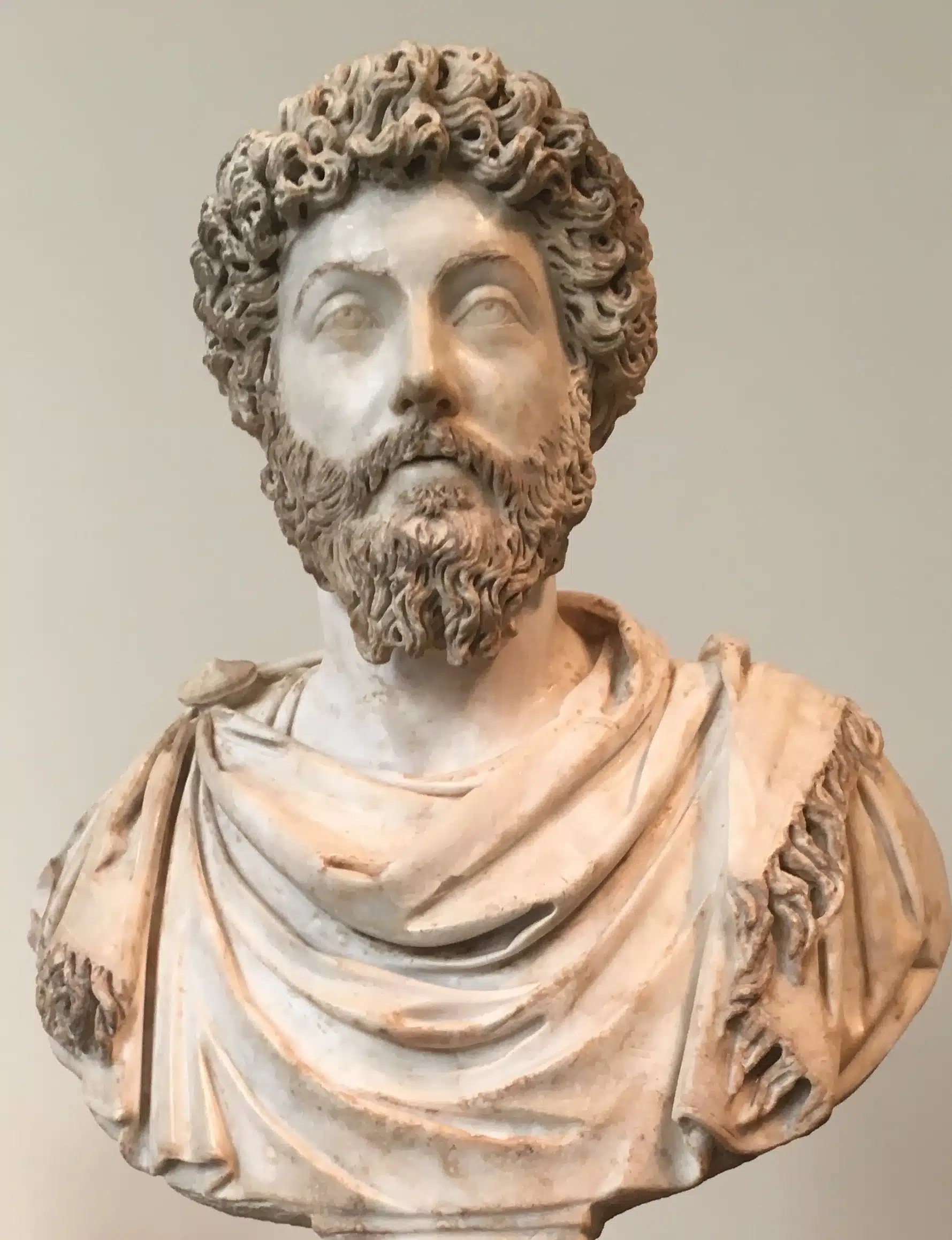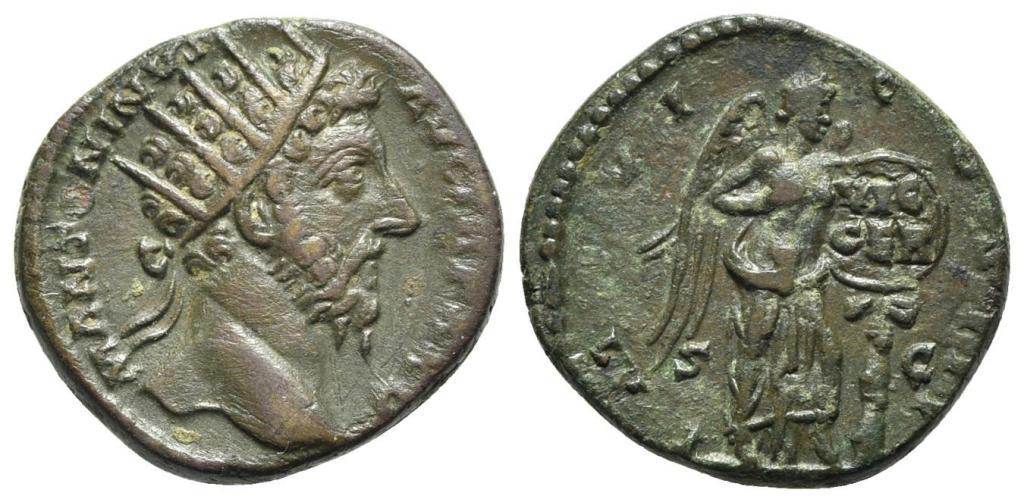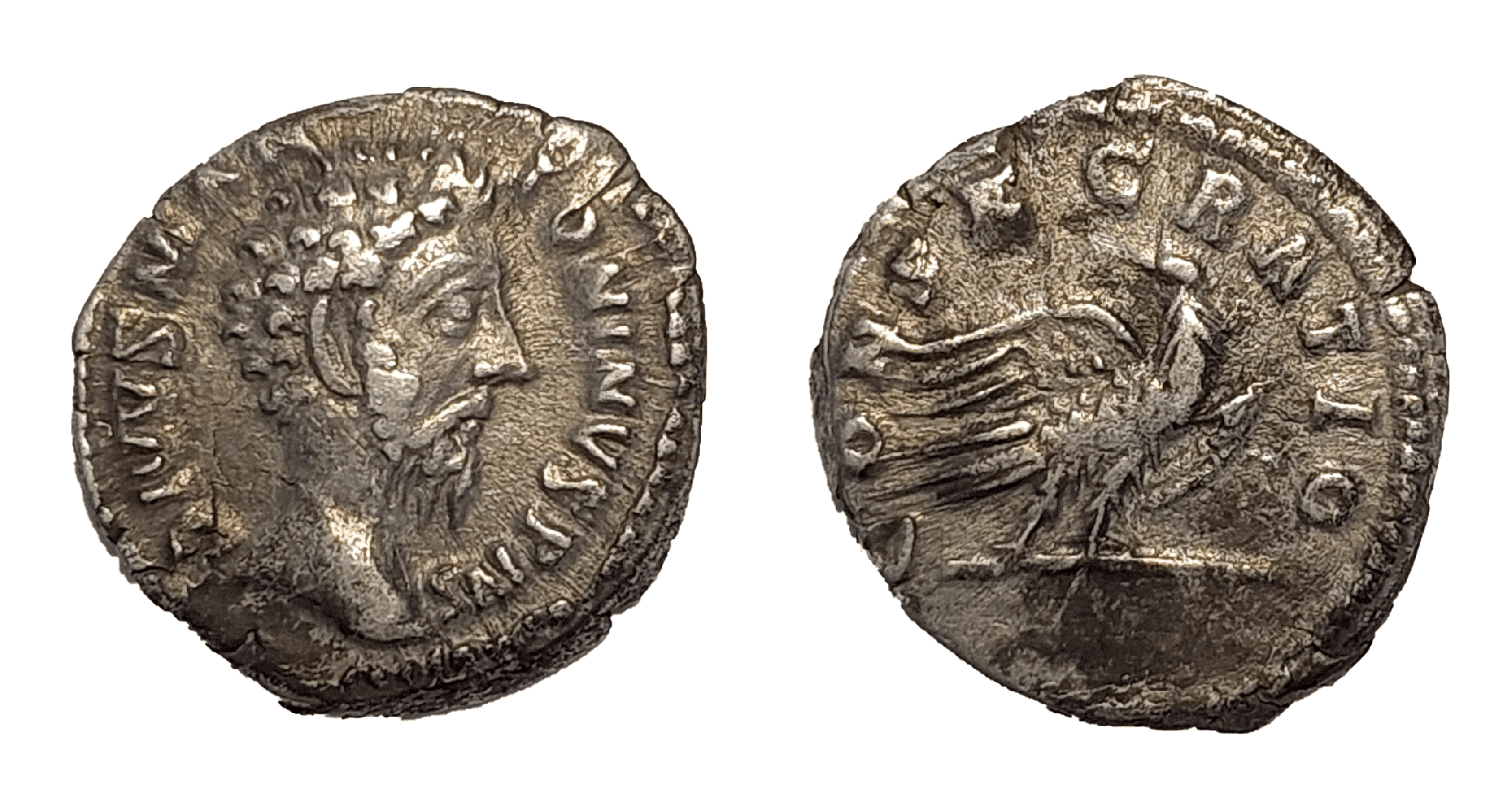| Predecessor | Antoninus Pius |
| Successor | Lucius Verus (161–169) Commodus (177–180) |
| Born | 26 April 121, Rome, Italy |
| Died | 17 March 180 (aged 58), Vindobona, Pannonia Superior |
| Spouse | Faustina the Younger |
| Children | 14, including: |
| Father | Marcus Annius Verus Antoninus Pius (adoptive) |
| Mother | Domitia Calvilla |
His Story
Known for his philosophical interests, Marcus Aurelius was one of the most respected emperors in Roman history.
Marcus Aurelius was one of the most respected and influential Roman emperors, as well as a Stoic philosopher and a prolific writer. He ruled from 161 to 180 CE, during a turbulent period of wars, plagues, and political crises. He is best known for his work Meditations, a collection of personal reflections on ethics, duty, and the nature of the universe.
Marcus Aurelius was born on April 26, 121 CE, in Rome, to a wealthy and prominent family. His original name was Marcus Annius Verus, but he changed it when he was adopted by Emperor Antoninus Pius in 138 CE, as part of a succession plan devised by Emperor Hadrian. Marcus was educated by tutors and learned Latin, Greek, rhetoric, philosophy, and law. He was especially drawn to Stoicism, a school of thought that taught self-control, rationality, and detachment from worldly passions.
In 140 CE, Marcus became consul, the highest office in the Roman Senate. He married Antoninus’ daughter Faustina in 145 CE, and they had at least 13 children, although many of them died young. In 161 CE, Antoninus died and Marcus became emperor, together with his adoptive brother Lucius Verus. They were the first co-emperors in Roman history, and they divided their responsibilities: Marcus stayed in Rome to oversee the administration and the law, while Lucius went to the East to lead the war against the Parthian Empire.
The joint reign of Marcus and Lucius was marked by many challenges and hardships. Besides the Parthian War, which lasted until 166 CE, they also had to deal with invasions by Germanic tribes along the northern frontier, a devastating plague that killed millions of people, a revolt by one of their generals in Syria, and a series of earthquakes, floods, and famines. Marcus spent much of his time on military campaigns, traveling across the empire and fighting to defend its borders.
Despite these difficulties, Marcus Aurelius maintained his composure and his dignity. He was known for his justice, his generosity, his clemency, and his devotion to his duties. He also continued his philosophical studies and writings, which he regarded as a source of guidance and consolation. He composed his Meditations in Greek, during his campaigns or in his tent at night. The work consists of 12 books of personal notes, addressed to himself, that cover topics such as virtue, death, fate, God, nature, human relations, and the role of the emperor. The Meditations are considered one of the most influential works of Stoicism and one of the greatest literary monuments of ancient Rome.
Marcus Aurelius died on March 17, 180 CE, in Vindobona (modern Vienna), after a long illness. He was succeeded by his son Commodus, who proved to be a cruel and incompetent ruler. Marcus Aurelius was the last of the Five Good Emperors (a term coined by Machiavelli), who presided over the peak of the Roman Empire’s prosperity and stability. He was also the last emperor who adhered to Stoicism as a way of life and a source of wisdom. His legacy as a philosopher-king has inspired many generations of thinkers and leaders.





